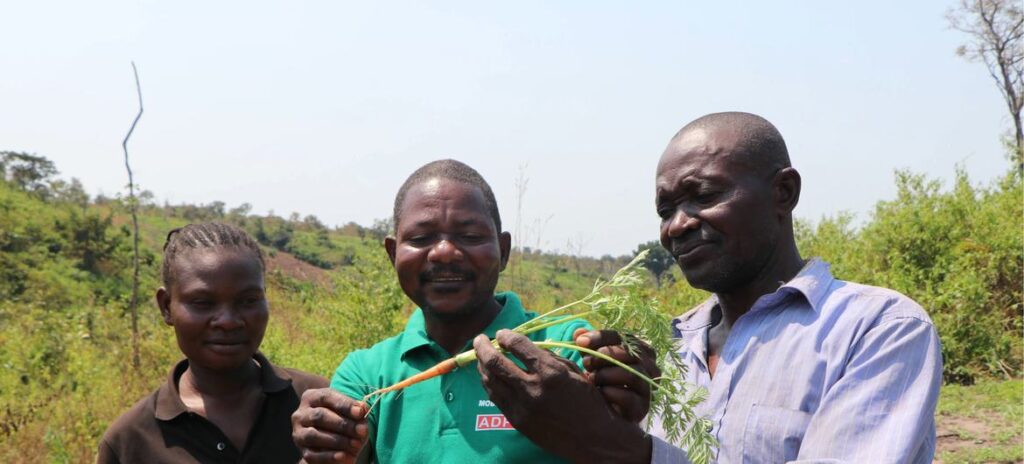
With more than 160 refugees actively working in the fields through the initiative, and another 110 refugees expected to join soon, the impact resonates far beyond just livelihoods for them and their families. It also benefits other refugees and host communities to whom they sell some of the products.
Led by the indomitable Maman Antho, a former government employee in the Democratic Republic of Congo (DRC) who has become a beacon of female empowerment, the project symbolizes a shift from dependence on international aid to autonomy.
Duty to cultivate
Her journey from receiving food aid to leading agricultural self-reliance embodies the essence of refugee empowerment and delivers a powerful message about gender equality and the crucial role women can play in their communities.
“We have a duty to work the land, so our children can see how their parents work to make a living. We like to take children here to show them that our basic food comes from our work,” says Maman Antho.
“We don’t want to be dependent on humanitarian aid because we know it could stop one day. The times of need are over – now is the time for development.”
For Emmanuelle Mitte, UNHCR Maman Antho, representative in the African country, is “an example of how the refugee community, with solidarity, can give their families dignity and autonomy while supporting the country. Angola is a compassionate nation, and UNHCR works with the government and people of Angola to protect people fleeing war and violence.”
More than agriculture
The resilience of refugees is celebrated World Refugee Day on June 20, emphasizing the importance of unity and developing solutions for the integration of forcibly displaced persons in Angola.
For refugee Jean Bafolo, a devoted father of three, the project represents more than just farming. It is a path to regaining pride and self-esteem, empowering him to care for his family with dignity and resilience.
“I can proudly tell my children that this food comes from my work, from what I do with my hands,” Mr Bafolo said. “And one day they will continue the work I do.”
Legacy of hope
Against the backdrop of rolling rice fields on a cloudy day, the sight of smiling faces reflects a renewed sense of purpose and community.
Beyond the harvest, this endeavor feeds not only mouths but also the human spirit, creating resilience and autonomy in a community that strives for a life of dignity and fulfillment, ensuring a legacy of hope and determination to thrive for generations to come .
The projects to integrate refugees into food production in Lunda Norte province started in 2019 with UNHCR. The initial production, exclusively focused on vegetable cultivation, made a leap in 2023 through the collaboration with WFP enabled rice and maize production to feed refugee and host communities, encouraged commercial agriculture and promoted social cohesion.
“The stories of Maman Antho and Jean Bafolo provide a beacon of hope for many other refugees and are a testament to their resilience, ambition and positive contributions to their host communities,” said José Ferrão, WFP Representative in Angola.
“WFP is committed to continuing its collaboration with the Government of Angola and its partners to build a better future for refugee and host communities and ensure that future generations can thrive and prosper.:
Angola is home to more than 55,000 people in need of international protection. In Lunda Norte, the Lóvua settlement is home to around 6,200 refugees, including the families of Maman Antho and Mr Bafolo.

